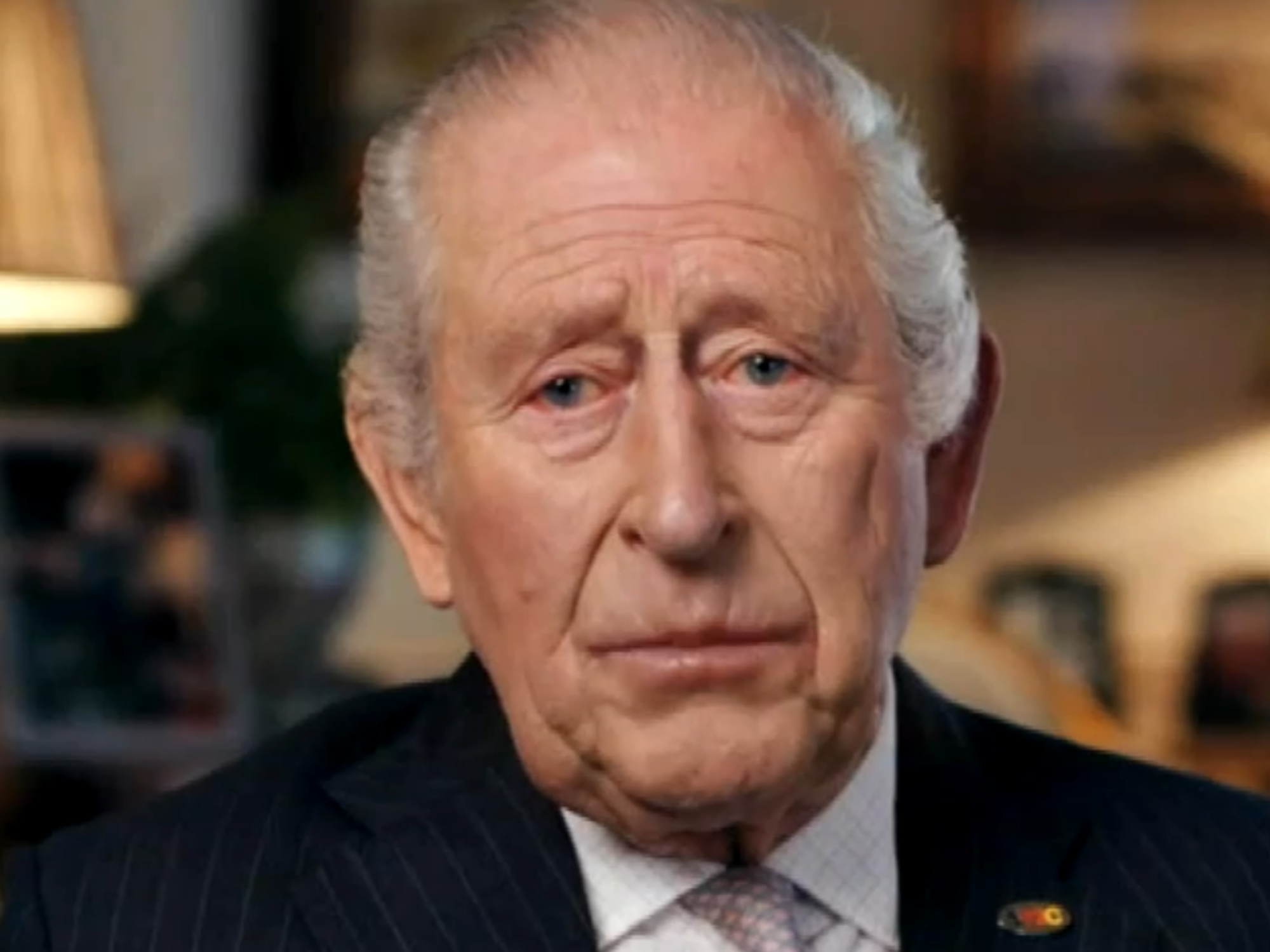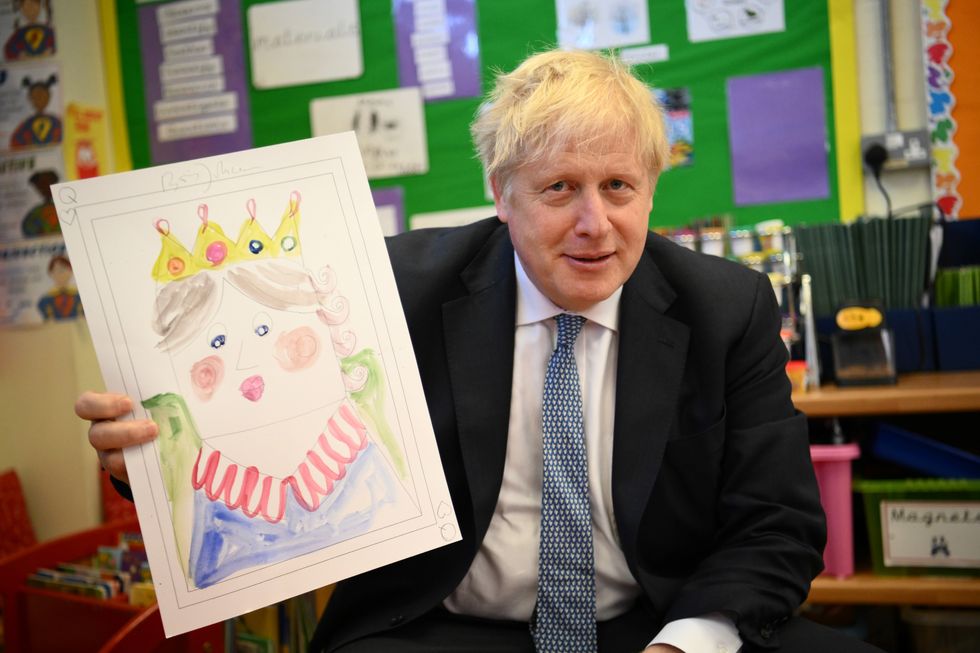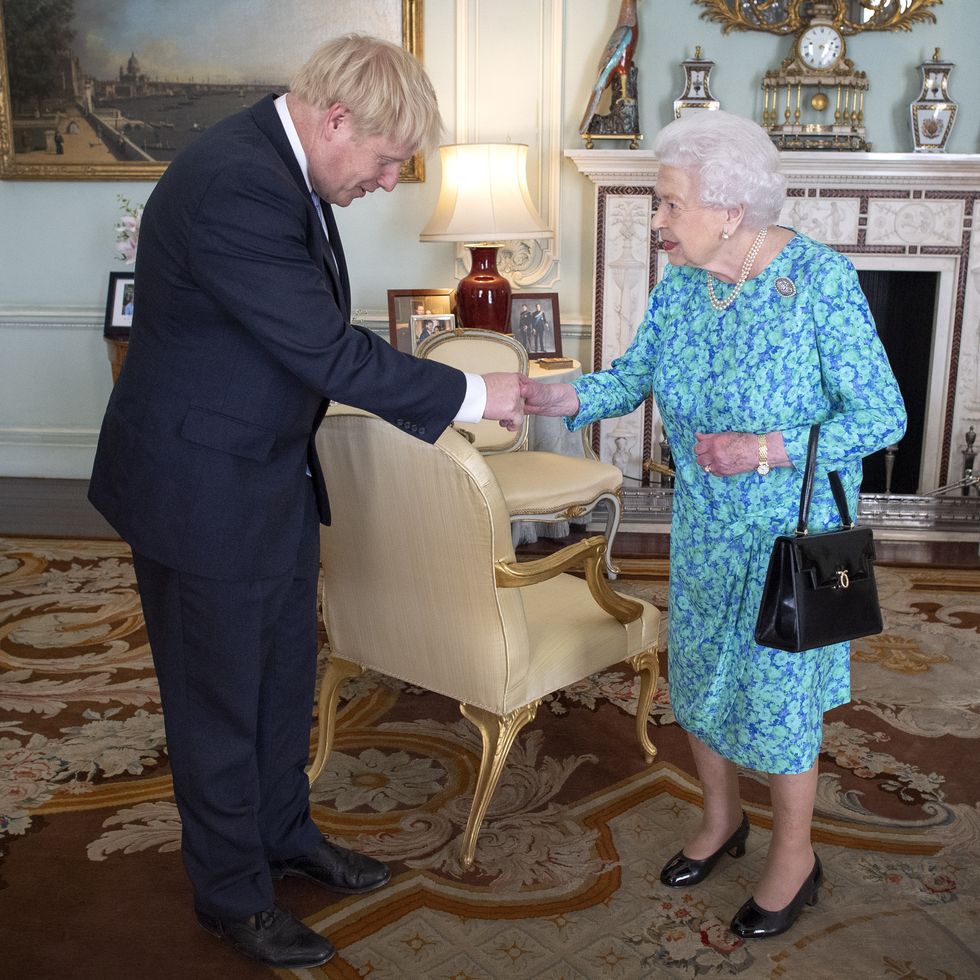Boris Johnson will use Queen’s Speech to unleash Bills that ‘deliver on promise of Brexit’

The 'super seven' set of Brexit Bills will allow Britain to 'thrive as a modern, dynamic and independent country'
Don't Miss
Most Read
The Prime Minister is promising to deliver a “super seven” of Brexit Bills which will cut red tape and “unnecessary barriers inherited from the EU”.
Boris Johnson is planning to announce the new laws which will “deliver on the promise of Brexit” in the Queen’s Speech.
Prime Minister Boris Johnson with the portrait he painted of the Queen during a drawing session with children as part of a visit at the Field End Infant school, in South Ruislip
Daniel Leal
The “super seven” set of Brexit Bills will allow Britain to “thrive as a modern, dynamic and independent country” by “changing old EU rules that don’t work for the UK”, he told the Sunday Express.
Mr Johnson told newspaper: “I call them the super seven – and they will benefit families and businesses across the land by changing old EU rules that don’t work for the UK.
“From data reform to gene-editing to financial services, these Bills will allow us to thrive as a modern, dynamic and independent country, and this government is getting on with the job of delivering them.”
The Queen’s Speech, being delivered in Parliament on Tuesday, will be used by Mr Johnson as an attempt to show his administration is focused on people’s concerns on issues including the rising cost of living following a bruising set of local elections influenced by the partygate row and the behaviour of Tory MPs.
The Prime Minister is expected to also announce the Government’s plans to revive struggling town centres.
Queen Elizabeth II welcomes Boris Johnson in 2019
Victoria Jones
The plan to rid high streets of “derelict shopfronts” and restore neighbourhood pride, with councils given extra powers to force landlords to rent out empty shops, will form a key plan of the Queen’s Speech as Mr Johnson tries to reset his Government following damaging local election results.
Other measures will include the ability to make the pavement cafes which sprang up during the Covid-19 pandemic a permanent part of the town centre landscape.
Under the Levelling Up and Regeneration Bill measures to revive England’s high streets, councils will be given powers to take control of buildings for the benefit of their communities.
Compulsory rental auctions will ensure that landlords make shops that have been vacant for more than a year available to prospective tenants.
Authorities will also be given greater powers to use compulsory purchase orders to deliver housing, regeneration schemes and infrastructure.
Mr Johnson said: “High streets up and down the country have long been blighted by derelict shopfronts, because they’ve been neglected, stripping opportunity from local areas.
“We are putting that right by placing power back in the hands of local leaders and the community so our towns can be rejuvenated, levelling up opportunity and restoring neighbourhood pride.”
Officials highlighted British Retail Consortium figures showing about one in seven shops were vacant, with as many as a fifth empty in the North East.
Shops have been hit by high rental and business rate costs and declining demand as consumers have moved online, a trend exacerbated by the pandemic.
Levelling Up Secretary Michael Gove said: “By empowering local communities to rent out shops which have been sat empty for a year or longer, we will end the scourge of boarded up shops that have blighted some of our great towns across the country for far too long.”
The measures aimed at making a continental-style cafe culture a permanent feature of England’s towns and cities will also feature in the Government’s plans.
During the pandemic, restaurants, pubs and bars were granted temporary powers to serve guests on pavements.
Through new legislation, these powers will be made permanent to expand capacity for businesses in the hope of boosting local economies.













